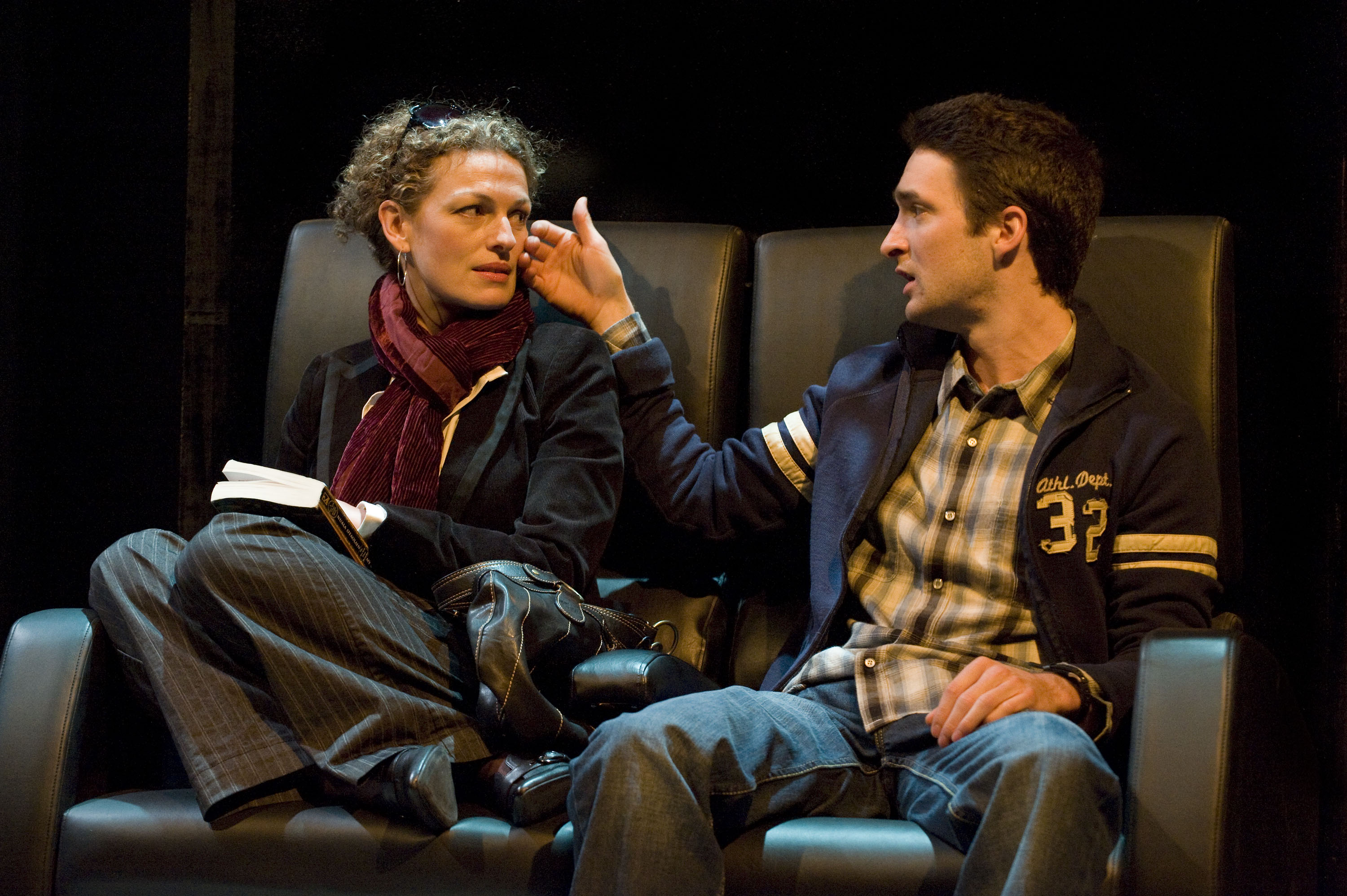Stoppard: recreating as recreation

“Biography is the mesh through which our real life escapes.” Tom Stoppard, _The Invention Of Love_
"The Arts Club":http://artsclub.com/ Granville Island Stage recently produced Tom Stoppard’s 1982 play _The Real Thing_, and the current production by the "United Players":http://www.unitedplayers.com/index.html of his 1997 play, _The Invention of Love_, is a Canadian premiere.
A couple of seasons ago, "Bard on the Beach":http://www.bardonthebeach.org/ produced _Rosencrantz and Guildenstern Are Dead_ in rep with their run of _Hamlet_. Vancouver productions of arguably the greatest living British playwright are normally a bit sparse, so it’s good to see local theatres taking him on in recent times.
The author of Tom Stoppard’s only biography, "Ira Nadel":http://faculty.arts.ubc.ca/inadel/, lives here in Vancouver and is a professor at UBC. He gave a talk as part of the Arts Club’s excellent Monday night talk series during the run of _The Real Thing_, where he revealed that his introduction to Stoppard’s work on stage was Bill Millard’s production of _The Real Inspector Hound_, at the long gone Arts Club on Seymour Street, downtown.
Nadel’s enthusiasm for Stoppard is infectious, and his biography, _Tom Stoppard: A Life_, is comprehensive and entertaining. I spoke with Ira Nadel during the Art’s Club run of _The Real Thing_, about that play and about Stoppard himself.
Tom Stoppard has never been shy to celebrate Englishness, not being, strictly speaking, English himself. The Czech born Stoppard delights in England, proudly accepting the Companion of the British Empire, something Harold Pinter always rejected. From cricket, royal appointments and even – shudder – Thatcher, Stoppard has embraced it all, while maintaining an otherness, remaining on some level a refugee in his relationship with England.
Nadel says “When they first meet him, most people are surprised by Stoppard’s Czech accent.” Born in Czechoslovakia in 1937, Stoppard was saved from the Nazi’s when his family was relocated to India by the Bata shoe company, for whom his father was a company doctor. Tom Stoppard, along with his mother and brother, got out, but his father who remained behind was killed. Eventually, his mother married a Brit named Kenneth Stoppard, who adopted the two boys, and after some time in Asia, brought the family home to England.
The play that brought Stoppard to prominence is _Rosencrantz and Guildenstern Are Dead_, where Hamlet’s school friends arrive at Elsinore and the drama that is Shakespeare’s _Hamlet_ is seen through the eyes of these reluctant, confused witnesses.
From the late 60’s and throughout the 70’s, Stoppard concentrated on plays that dealt with high level intellectual concepts; _Rosencrantz and Guildenstern_ deals with laws of probability in science and language, and _Jumpers_ has acrobats share the stage with philosophers with a focus on “time and language”.
While he also tackled political context in his 1978 play, _Night And Day_, Nadel comments that up to this point Stoppard wrote “characters that are believable, but not based in realism.” With _The Real Thing_, we find that “Stoppard has emotions. For the first time, he shows contemporary relationships focused on love.”
Stoppard’s work is always theatrical, even when focusing on realism. Nadel points out that the first sound in _The Real Thing_ is a theatrical echo; the slamming door is a reference to Nora’s escape from Ibsen’s _The Doll’s House_. That play ends with a slamming door; _The Real Thing_ begins with one.
When I spoke Ira Nadel, I quoted an interview that Stoppard gave in the Village Voice in 1999:
“Theatre is recreation. It can be much more, but unless it’s recreation, I don’t see the point of it.”
I pronounced “recreation” as “rec.ree.AY.shun” as in “means of refreshment after work, as games, picnics, and other leisure-time activity”. I thought I was onto something. Nadel diplomatically said, “remember with Stoppard there’s more than one meaning; he’s brilliant. It can also be read as, “ree.cree.ATE.” Stoppard is fascinated with reenactment, recreating.” Oh yeah. Here’s something I bet Tom Stoppard has never said; “D’oh.”
In his book, Nadel points out that “Balancing opposing viewpoints, celebrating ambiguity and self contradiction have long been Stoppard’s habits.” This is particularly true when Stoppard explores the nature and consequences of love.
_The Invention of Love_ explores the life of poet and literary critic A. E. Houseman, whose self censorship in love becomes in Stoppard’s play one of regret and pathos. Although Houseman and Oscar Wilde did not meet on a trip to Europe in real life, they should have, and so Stoppard brings them together, and their contrasting experiences; Houseman dedicated to scholarship, Wilde just released from prison for dedicating his life to art and the Love That Dared Not Speak Its Name.
Stoppard skillfully explores life and love through the fictional lives of real people; after writing _The Invention of Love_, he did so in his screenplay, _Shakespeare In Love_. On the outside, it can look like Stoppard is always looking to complicate things with language, science and ambiguity. Yet Nadel points out that Stoppard himself has said, “It’s a sad story, isn’t it, my hopeless quest for simplicity.”
Nadel says one of the things Stoppard is constantly doing is “looking for the right note. Unlike (David) Mamet, for example, who enjoys exploring the wrong note.”
Ira Nadel writes that Stoppard is the author of “prismatic comedies in which language celebrates the certainty that there are no certainties.” In these uncertain times, it is good to have the opportunity to see Vancouver productions of Tom Stoppard’s plays, which to my mind hits the right note, and makes for wonderful recreation.
_The United Player’s production of The Invention of Love continues at the Jericho Arts Centre until April 26th. For more information check "this":http://www.unitedplayers.com/ out_



